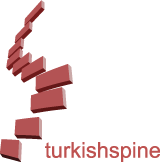ABSTRACT
We report a 38 year old male patient underwent basilar invagination and Arnold-Chiari type I malformation. Although he has effective spontaneous ventilation, he is fully awake, there were no signs of laryngeal edema, and negative cuff leak test following the extubation the patient could not breathe because of complete laryngeal obstruction at the end of the operation. The patient could not be ventilated via a face mask, supraglottic airway, and intubation bought but could be ventilated with emergent tracheostomy under sedation. Airway complications after posterior cervical spine surgery are the most commonly because of laryngeal edema and macroglossy. If there is risk of airway edema for extubation, difficult intubation and extubation management strategy should provide lifesaving factor in cervical spine surgery.



